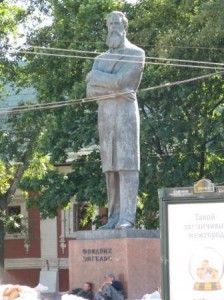Advance registration for winter and spring terms will resume next Monday, October 14, and continue through the last day of classes for the term, Thursday, November 21. Only degree-seeking, Waseda, and visiting/exchange students are eligible to advance register for classes.
Pre-registration for Winter and Spring resumes October 14, and I encourage you to sort your schedule out, especially so that the instructors can plan for classes appropriately. We tend to do things differently in classes with enrollments of 25 than with 10, for example.
Here is the full schedule. Here are some of the highlights:
WINTER:
- Finance (ECON 295) with Professor Vaughn. This is a continuation of the financial accounting course (ECON 170), and it looks excellent.
- We have opened a second section of Econometrics (ECON 380) in the winter. We currently have 26 registered in one section and two in the other. Professor Devkota is teaching both sections.
- Sports Economics (ECON 495) with Professor Rhodes, MWF at 3:10. The prerequisites are the intermediate micro and econometrics courses (ECON 300 and ECON 380).
- Both Senior Experience options are open. Professor Finkler is in charge of the paper option (ECON 602) and you must clear the topic with him.
- The Senior Experience reading option (ECON 601) will feature Alexander Field’s A Great Leap Forward: 1930s Depression and U.S. Economic Growth. Tyler Cowen calls it a “masterpiece.” Professor Field will be on the campus in the Spring to meet with students and give a public lecture. For advanced sophomores and juniors (i.e., those who have had econometrics), I will offer a 2-3 unit directed study (a Junior Experience).
SPRING:
- Professor Devkota will offer Economic Development (ECON 200). This is potentially a great second class for someone who has had ECON 100 or ECON 120 and wants to take a second course. He is teaching it this term, so there is some information out there from someone other than me (it sounds like an excellent class).
- We are also offering Decision Theory (ECON 225) and Environmental Economics (ECON 280). If you are planning to major or minor, we strongly encourage you to take Decision Theory during your time here.
- Professor Devkota will offer International Trade (ECON 460) for the major set.
- Professor Rhodes will offer a 400-level math-econ course (ECON 495), available to anyone with calculus and ECON 300.
If you have any questions, get in touch with Professor Finkler, Professor Galambos, or Professor Gerard in terms of how you might schedule a major or minor, or simply what courses make sense given your academic and extra-academic interests. If you have questions about the particular courses, you can direct inquiries to the instructor.
